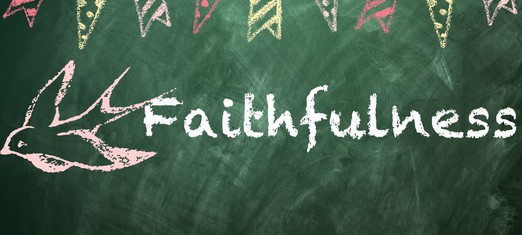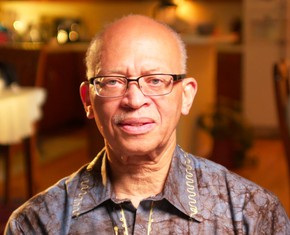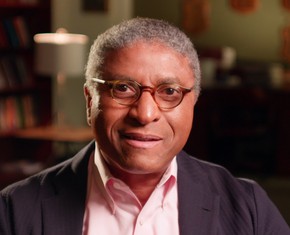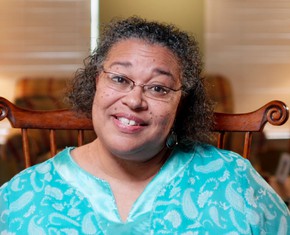Consider your closest friends – the people in your life who you really love and trust – and think, for a moment, about the level of faithfulness any close relationship requires.
When you’re faithful – when you remain true to your promises, beliefs, and moral convictions – you build trust, loyalty, and a happy life.
RELATED: The Virtues Basket: How to Become a Reliable Human
Faithfulness means being loyal to someone or something. When we’re faithful, we remain true to our beliefs, our relationships, and our friendships regardless of difficult circumstances. The Baha’i teachings encourage everyone to develop the inner virtue of faithfulness, as Abdu’l-Baha did in this speech he gave in New York in 1912:
… you must become eminent and distinguished in morals. In the love of God you must become distinguished from all else. You must become distinguished for loving humanity, for unity and accord, for love and justice.
In brief, you must become distinguished in all the virtues of the human world – for faithfulness and sincerity, for justice and fidelity, for firmness and steadfastness, for philanthropic deeds and service to the human world, for love toward every human being, for unity and accord with all people, for removing prejudices and promoting international peace.
Faithfulness also means keeping our promises – a faithful person devotes themselves to carrying out what they’ve committed to accomplish. That practice of faithfulness builds trust and fellowship. Also, when we practice faithfulness, we develop good habits like making promises we can keep – and fulfilling those promises.
Faithful people live their lives through deeds, not words. Faithfulness includes many virtues like loyalty, honesty, reliability, steadfastness, loving kindness, and patience. The characteristic of faithfulness makes those who practice it trustworthy friends, husbands or wives, children, coworkers, etc.
Traditionally it was customary to be born into a belief, faith, or discipline. The elders were responsible to make sure the youngsters follow those inherited beliefs without really questioning them, or risk being considered disloyal – an infidel. During those past periods of history, many were illiterate and did not have the opportunity to read and find answers on their own, so had to follow someone else. Sometimes, these beliefs would be altered based on the time and place to fit the personal interests of those in charge, and then would be transferred as facts to the next generation. However, the Baha’i teachings tell us that in this era humanity has become mature and capable enough to really understand and research what to accept as facts and truth.
The Baha’i writings call this process “the independent investigation of truth,” which can help everyone truly understand whether a principle is correct before taking it for granted. Once a discerning person researches, questions, and finds answers about a concept or belief, and accepts it as a value, then he or she must be faithful to that belief in practice.
If any concept or belief is really true, the independent investigation of the truth will lead one to find that belief as verifiable and accurate, which can help us become firmer in practicing it. But if we show faithfulness through words only, trust soon evaporates. People who are unfaithful are seen as unreliable. Linda Popov in The Family Virtues Guide explains that an unfaithful person says one thing and does another. Such a person believes in one thing today, and in another thing tomorrow – which means that no one can really count on disloyal and unfaithful individuals. These kinds of people may not know what they believe in either, and therefore not have any firm values. Their unfaithful actions may hurt us, damage our reputations, or ruin our friendships with others.
Our behavior reveals our true character. If we’re faithful to our beliefs, such as our belief in God, we’ll work hard to accomplish worthy deeds and serve humanity. Baha’u’llah wrote, “Happy is the faithful one who is attired with the vesture of high endeavor and hath arisen to serve this Cause.”
Popov also mentions that faithfulness builds loyal friendships. In a friendship, faithfulness requires that we privately solve issues with our friends if we feel hurt or get mad at them, rather than backbiting or gossiping. When a new friend comes along, we don’t leave our old friends behind – we make the circle of friendship wider.
This Virtues Basket video aims to shed light on how to be a faithful person, and why it’s important for us to really learn and find our values independently.
Setareh Samandari Zargarpour has always been an artist at heart, after a 20-year career in Banking as Branch Manager for Wells Fargo and Chase she transitioned to working in Film. She had finished her Master of Arts in Political Science from CSUN and utilized it...
READ MORE
















Comments
Sign in or create an account
Continue with Googleor